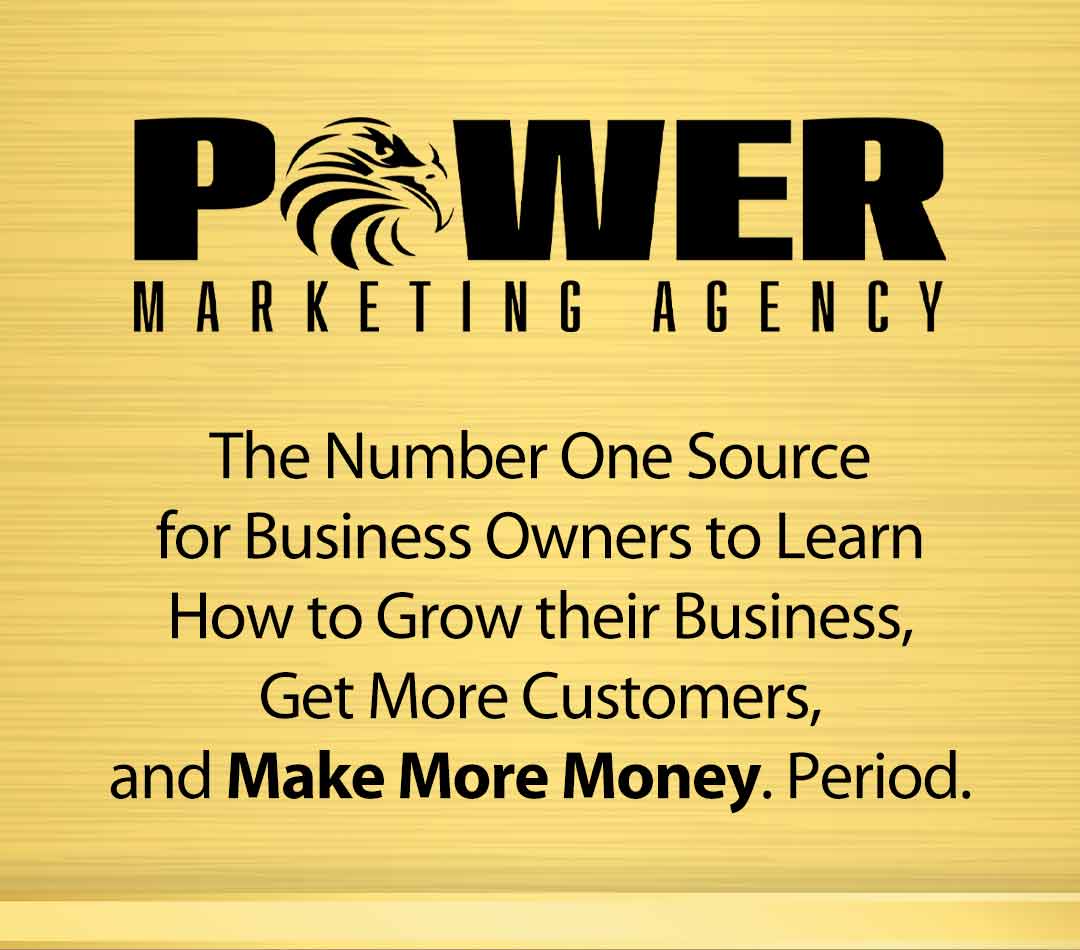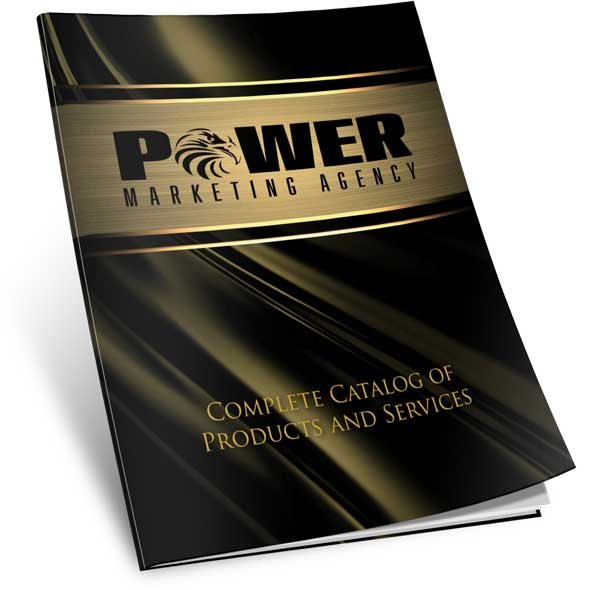
3 Forbidden Phrases in Marketing
There are certain phrases that, if used in your advertising, will guarantee that your advertising results will be terrible and yes—I do guarantee that you are using them in your ads right now. But before I tell you what they are, I want you to get the phone book right now and open the phone book up to your ad. If you don’t have an ad in the phone book, then get your brochure, your newspaper ad, your website, or any other advertisement or marketing piece that you use, because I’m going to give you 3 evaluations in just a second so you can see if your ad passes or fails.
Okay, so you should have your ad ready now. But before I give you the evaluations, let me ask you a simple but important question. Do you always feel forced into a price-competitive situation in your industry? Do you feel like your customers only care about price? Are you always cutting your profits so that you can match a competitor’s price? If so, pay close attention to what I’m about to show you because I’m about to explain the biggest reason for that problem.
So here’s the deal, the 3 Forbidden Phrases that you should never use in advertising are phrases or statements that include platitudes. Now, let me give you the definition of a platitude. A platitude is defined as “words or phrases that are drearily commonplace and predictable that lack power to evoke interest through overuse or repetition, that nevertheless are stated as though they were original or significant.”
These are words and phrases like: highest quality, biggest selection, largest inventory, best service, been in business since 1776 BC, family owned, gets the job done right the first time, fast, residential and commercial, free estimates, locally owned and operated, #1 in satisfaction, we’re better, why pay more, lowest prices, we care, conveniently located, professional, experienced, affordable, board certified, accredited, we’re different, advanced techniques, call today, dependable, etc. Do you get the point yet?
Now look, I’m not saying that you shouldn’t actually be these kinds of things, but I am saying that they are all platitudes. Every one of those statements and phrases are drearily commonplace and predictable, they lack power to evoke interest through overuse or repetition, and they were nevertheless stated as though they were original or significant. They’re all platitudes, my friend. And, I’m going to make you two guarantees about these platitudes right now. The first guarantee is this:
Okay, so you should have your ad ready now. But before I give you the evaluations, let me ask you a simple but important question. Do you always feel forced into a price-competitive situation in your industry? Do you feel like your customers only care about price? Are you always cutting your profits so that you can match a competitor’s price? If so, pay close attention to what I’m about to show you because I’m about to explain the biggest reason for that problem.
So here’s the deal, the 3 Forbidden Phrases that you should never use in advertising are phrases or statements that include platitudes. Now, let me give you the definition of a platitude. A platitude is defined as “words or phrases that are drearily commonplace and predictable that lack power to evoke interest through overuse or repetition, that nevertheless are stated as though they were original or significant.”
These are words and phrases like: highest quality, biggest selection, largest inventory, best service, been in business since 1776 BC, family owned, gets the job done right the first time, fast, residential and commercial, free estimates, locally owned and operated, #1 in satisfaction, we’re better, why pay more, lowest prices, we care, conveniently located, professional, experienced, affordable, board certified, accredited, we’re different, advanced techniques, call today, dependable, etc. Do you get the point yet?
Now look, I’m not saying that you shouldn’t actually be these kinds of things, but I am saying that they are all platitudes. Every one of those statements and phrases are drearily commonplace and predictable, they lack power to evoke interest through overuse or repetition, and they were nevertheless stated as though they were original or significant. They’re all platitudes, my friend. And, I’m going to make you two guarantees about these platitudes right now. The first guarantee is this:
- I guarantee you are using platitudes just like these in all of your advertisements right now—especially if you advertise in the Yellow Pages. Here in the Treasure Valley, I’ve looked through all of these books myself and there is not one ad yet that passes the 3 evaluations I’m about to give you.
- The second guarantee is this—using these platitudes in your advertisements has made your advertising results dismal for as long as you’ve used them. This means you’ve left an untold sum of money on the table—money that you could have had in the bank account already if you would have applied the principles I’m about to teach you.
Platitude Evaluation #1 – Well I would hope so
I want you to take a look at any claim you’ve made in your ad and ask yourself if a customer or prospect, could or would automatically respond with the statement, “Well I would hope so.” For example here’s an ad for a plumber that says “Plumbing Service and Repair.” Well I would hope so, you are a plumber right? This one says, they are “licensed, bonded and insured,” and that they “fix faucets and fixtures, water heaters, tubs and showers, etc.” Well I would hope so. You’re a plumber. What else would you do? I mean, it’s so painfully obvious that it’s ridiculous. Or how about this one that says “committed to honest, ethical service.” Well I would hope so! What else would you expect them to say? Hey we’re lousy, we’ll show up late, make your house dirty, expose our backsides to your kids and wife, and make sure that the problem that we fixed will break again a few weeks after we fix it. Of course not! Everybody is going to say great things about themselves if they can get away with it.
So what about your ad? How did you do? Do you have any of these painfully obvious statements that would cause someone to say, well I would hope so? Be honest with yourself and check. Okay, on to the second evaluation:
So what about your ad? How did you do? Do you have any of these painfully obvious statements that would cause someone to say, well I would hope so? Be honest with yourself and check. Okay, on to the second evaluation:
Platitude Evaluation #2 – Who else can say that?
Pay close attention to this one, because the question is not who else can do what you do, but who else can say what you say. The answer is usually anyone and everyone. Here’s a painter who says that he’s “Idaho’s best.” Who else can say that? Now this guy might actually be the best in Idaho and the best in the entire universe for all I know, but do you actually believe it just because he said it? Who else can say that? Can’t the guy on the next page who says “where integrity and quality meet” also say that he’s Idaho’s best? Of course he can. Or this painter who says that “every job is a work of art.” Who else can say that? Again, anybody and everybody can say it. That’s who. See, these statements are drearily predictable and commonplace and they lack power to evoke interest. And you know what, they were nevertheless stated as though they were original or significant. Now look at your ad. Read a few lines and then ask yourself this, “who else can say that?” If one of your competitors can say it, you failed this evaluation.
One of the most common platitudes here is to tell us how long you’ve been in business. Everybody thinks it matters, but I promise you it doesn’t. Here’s an illustration—how about this Chiropractor who thinks you should visit his practice because he’s been a Chiropractor for over 29 years. Who else can say that? Well, how about this competitor here who has been serving for over 30 years. See what I mean?
To take this one step further, let’s move on to the last evaluation which might hurt the most…
One of the most common platitudes here is to tell us how long you’ve been in business. Everybody thinks it matters, but I promise you it doesn’t. Here’s an illustration—how about this Chiropractor who thinks you should visit his practice because he’s been a Chiropractor for over 29 years. Who else can say that? Well, how about this competitor here who has been serving for over 30 years. See what I mean?
To take this one step further, let’s move on to the last evaluation which might hurt the most…
Platitude Evaluation #3 – The Cross Out Write-In Test
For this evaluation, I’m going to have you cross out the name of your company in your advertisement and then write in the name of your competitor. Now tell me this, is the ad still valid? If so, you’ve just failed the test. For example, take a look at this attorney’s ad. Let’s cross out Mahoney Law and put in Jones and Swartz. See, the ad is still valid. Or how about Kormanik, Hallam, and Sneed. See, the ad still works. These attorneys have all failed when it comes to marketing their practices. They might all be great or they might be terrible, but I can’t tell from their ads—it looks to me like they’re all the same. Or how about this auto repair shop, Aer Auto Repair, where they offer Honest, Quality repair and they have the latest technology and diagnostic equipment. Then they have a laundry list of services that they offer and an incredible 24,000 miles or 24 month warranty. Amazing! But right next to this ad is Meridian Automotive who says that they’ll “take care of you,” and they include their own laundry list of services that is nearly identical to the one we just saw, but get this—they have a 25 month, 25,000 mile warranty. Do you all get it? These ads all fail. Even though their warranties differ by 1 month and 1,000 miles, they are still basically the same so they don’t pass the cross out write in test. I can give you hundreds of other examples in these phone books for insurance companies who can give you “fast easy quotes” or dentists who offer “complete dental care” or landscape contractors who “cut to perfection,” but the bottom line is that none of these ads pass the cross out, write-in test or the other platitude evaluations. What about you? Cross out your name in your ad and write in the name of your closest competitor. Go ahead and do it right now. Now tell me, is the ad still valid? I mean really. I don’t care if you absolutely know that you have higher quality than your competitor because your competitor can still say that they have higher quality than you even if it’s not true. Another way to illustrate this is to do it in reverse. Cross out your competitors name on their ad and write your name in there. See, the ad is still valid, isn’t it? Bad news, my friend, you failed the test.
These 3 evaluations come straight out of marketing guru Rich Harshaw's groundbreaking book, Monopolize Your Marketplace. I’ve worked personally with Rich and we have incorporated some of his techniques into our unique and exclusive Power Marketing Program.
When we implement the Power Marketing Program into your business, one of the first things we do is remove all of the platitudes from your existing advertising. We innovate your company, and create specific and strategic marketing headlines, messages, and campaigns that absolutely separate you from your competitors and cause your prospects and customers to draw this simple conclusion, “I’d have to be an absolute fool to do business with anybody else but you, regardless of price.” We even have a specific marketing evaluation form that looks like this that guarantees that you’ll never put out another dismal ad with platitudes that gets lackluster results.
You see, platitudes cause your marketplace to assume that you and your competitors are all the same. That might not be true. You might have the best business of its kind in your industry, but since your ads and your competitor’s ads all use platitudes, then the marketplace can’t tell who actually offers the best value, so they call you up and ask you the same question that you’re probably really sick of hearing, which is “How much do you charge?” My friend, it doesn’t have to be that way.
Call my office right now and I’ll do the following 2 things for you: First, I’ll have one of my Account Executives drop off a FREE copy of Rich Harshaw’s book so you can read it and see exactly how we do marketing differently and more effectively than you’ve ever seen, and second, we’ll set up a FREE, no pressure, no obligation consultation with you (it will be a true consultation and not a sales call) where we analyze for you exactly where you are in your marketplace, how much marketing leverage there is available for your company, what the term “comprehensive marketing synergy” means and exactly what specific techniques you can implement to maximize your marketshare within one year.
But, you need to call now, because we can only work with one company in your industry in your local market. This means that if your competitor calls us first, we simply will not be able to work with you in the future.
These 3 evaluations come straight out of marketing guru Rich Harshaw's groundbreaking book, Monopolize Your Marketplace. I’ve worked personally with Rich and we have incorporated some of his techniques into our unique and exclusive Power Marketing Program.
When we implement the Power Marketing Program into your business, one of the first things we do is remove all of the platitudes from your existing advertising. We innovate your company, and create specific and strategic marketing headlines, messages, and campaigns that absolutely separate you from your competitors and cause your prospects and customers to draw this simple conclusion, “I’d have to be an absolute fool to do business with anybody else but you, regardless of price.” We even have a specific marketing evaluation form that looks like this that guarantees that you’ll never put out another dismal ad with platitudes that gets lackluster results.
You see, platitudes cause your marketplace to assume that you and your competitors are all the same. That might not be true. You might have the best business of its kind in your industry, but since your ads and your competitor’s ads all use platitudes, then the marketplace can’t tell who actually offers the best value, so they call you up and ask you the same question that you’re probably really sick of hearing, which is “How much do you charge?” My friend, it doesn’t have to be that way.
Call my office right now and I’ll do the following 2 things for you: First, I’ll have one of my Account Executives drop off a FREE copy of Rich Harshaw’s book so you can read it and see exactly how we do marketing differently and more effectively than you’ve ever seen, and second, we’ll set up a FREE, no pressure, no obligation consultation with you (it will be a true consultation and not a sales call) where we analyze for you exactly where you are in your marketplace, how much marketing leverage there is available for your company, what the term “comprehensive marketing synergy” means and exactly what specific techniques you can implement to maximize your marketshare within one year.
But, you need to call now, because we can only work with one company in your industry in your local market. This means that if your competitor calls us first, we simply will not be able to work with you in the future.
CONTACT INFORMATION:
Power Marketing Agency
100 East Pine Street Suite 110
Orlando, FL 32801
(321) 475-8777
(321) 362-7564 fax
Power Marketing Agency
100 East Pine Street Suite 110
Orlando, FL 32801
(321) 475-8777
(321) 362-7564 fax





